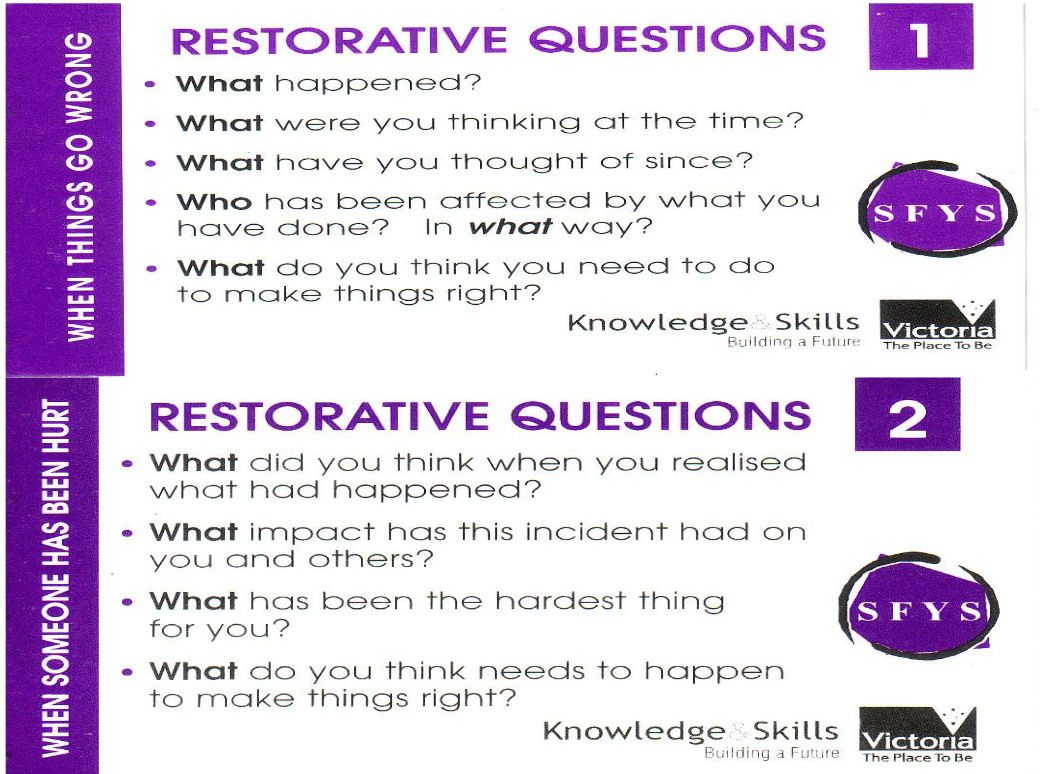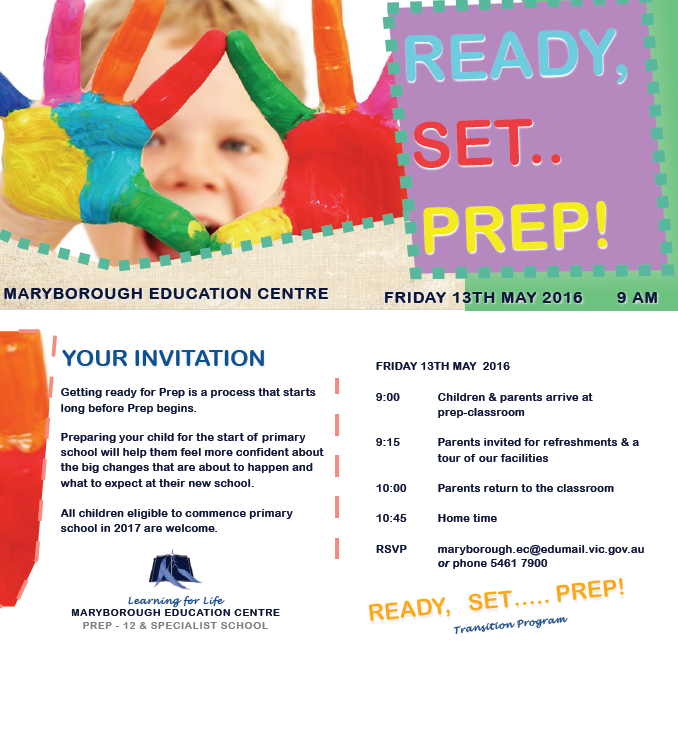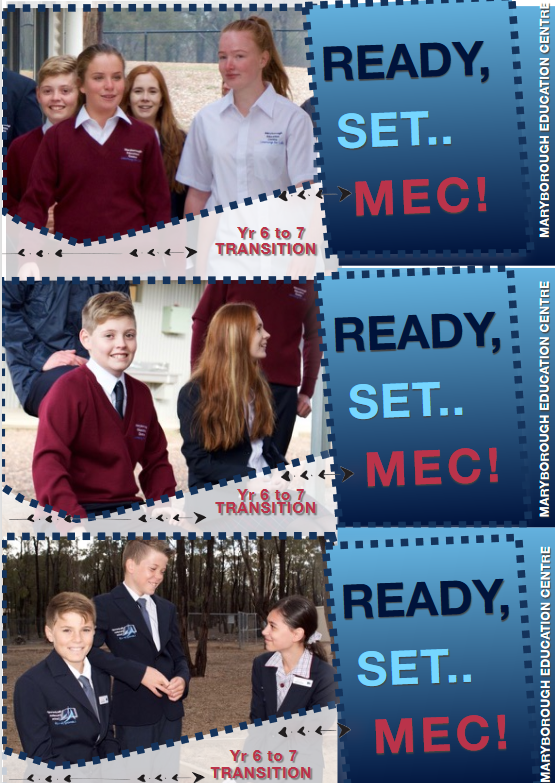Social Universal
Berry Street Education Model – Relationships
Curriculum Documents Specialist
Berry Street Education Model – Relationships
Back to Top or Back to Framework
You can find the full document here.
Child Safe Standards
Back to Top or Back to Framework
The aim of the Child Safe Standards is to create and maintain a child safe schools in Victoria. There are eleven Child Safe Standards.
Standard 1 – Organisations establish a culturally safe environment in which the diverse and unique identities and experiences of Aboriginal children and young people are respected and valued.
Click here for details about Child Safe Standard 1
Standard 2 – Child safety and wellbeing is embedded in organisational leadership, governance and culture.
Click here for details about Child Safe Standard 2
Standard 3 – Children and young people are empowered about their rights, participate in decisions affecting them and are taken seriously.
Click here for details about Child Safe Standard 3
Standard 4 – Families and communities are informed and involved in promoting child safety and wellbeing.
Click here for details about Child Safe Standard 4
Standard 5 – Equity is upheld and diverse needs respected in policy and practice.
Click here for details about Child Safe Standard 5
Standard 6 – People working with children and young people are suitable and supported to reflect child safety and wellbeing values in practice.
Click here for details about Child Safe Standard 6
Standard 7 – Processes for complaints and concerns are child-focused..
Click here for details about Child Safe Standard 7
Standard 8 – Staff and volunteers are equipped with the knowledge, skills and awareness to keep children and young people safe through ongoing education and training.
Click here for details about Child Safe Standard 8
Standard 9 – Physical and online environments promote safety and wellbeing while minimising the opportunity for children and young people to be harmed.
Click here for details about Child Safe Standard 9
Standard 10 – Implementation of the Child Safe Standards is regularly reviewed and improved.
Click here for details about Child Safe Standard 10
Standard 11 – Policies and procedures document how the organisation is safe for children and young people.
Click here for details about Child Safe Standard 11
For further information staff and parents can refer here and here.
MEC Expectations
Back to Top or Back to Framewor
Curriculum Documents P-6
Back to Top or Back to Framework
Curriculum refers specifically to a planned sequence of instruction that is designed to support each child learning experience at school. An important resource for Maryborough Education Centre (MEC) is the Victorian Curriculum which guides educators in the development of lessons in the following learning areas and capabilities. This resource is the foundation MEC teachers draw from to develop a more personalised scope and sequences to suit student engagement through Professional Learning Communities.
More information can be found for staff here.
Curriculum Documents 7-12
Back to Top or Back to Framework
Curriculum refers specifically to a planned sequence of instruction that is designed to support each child learning experience at school. The Victorian Curriculum and Assessment Authority, which includes the Victorian Curriculum, is an important resource for Maryborough Education Centre (MEC) which guides educators in the development of lessons in the following learning areas and capabilities. This resource is the foundation MEC teachers draw from to develop a more personalised scope and sequences to suit student engagement through Professional Learning Communities.
More information can be found here and here.
Curriculum Documents Specialist
Back to Top or Back to Framework
Curriculum refers specifically to a planned sequence of instruction that is designed to support each child learning experience at school. An important resource for Maryborough Education Centre (MEC) is the Victorian Curriculum which guides educators in the development of lessons in the following learning areas and capabilities. This resource is the foundation MEC teachers draw from to develop a more personalised scope and sequences to suit student engagement through Professional Learning Communities.
More information can be found for staff here.
Learning Mantras
Back to Top or Back to Framework
Learning Mantras assist students to understand how we should all act to create a happy and engaging learning environment for all students. Maryborough Education Centre has designed its own set of mantras that have been to reflect our school community.
The MEC Learning Mantrascan be found here.
Pride Crew
Back to Top or Back to Framework
https://mec.vic.edu.au/our-community/lgbtqia/
Pride Crew provides an educational space for students who identify as LGBTIQ+ It provides mentors, learning and leadership opportunities and an environment for young LGBTIQ+ students to mingle with peers and be themselves free from prejudice and or discrimination.
Respectful Relationships
Back to Top or Back to Framework
Information can be found on the Victorian State Government website here.
Restorative Practices
Back to Top or Back to Framework
MEC embraces restorative practice as one way of resolving relationship problems. Restorative practice in a school setting views misconduct not as school rule-breaking, but as a violation against people and relationships in the school and wider community. A Restorative School Community understands that
• Managing conflict is done by shifting focus from rule-breaking to repairing harm and strengthening relationships
• Misconduct is a violation of people and relationships
•Violations create obligations and liabilities that seek to heal and put things right
•Wrongdoers are done a disservice if you fail to confront them with consequences: Skilling them up for the future.
Examples of restorative questions are shown below.
Transition Programs
Back to Top or Back to Framework
Ready Set Prep
Back to Top or Back to Framework
Ready Set Prep is a transition program for students who are beginning school for their first year. Ready Set Prep aims to ensure that every child has the very best start to school. Ready Set Prep is offered in mainstream and the Specialist Setting.
Ready Set MEC
Back to Top or Back to Framework
Ready Set Prep is a transition program for students who are beginning Year Seven. Student are invited to take part in full days at the school to give them a smooth start into their senior schooling years. Ready Set MEC is offered in mainstream and the Specialist Setting.
Ready Set MEC was a program that started in 2016 to help assist students in Year 6 to feel more confident making the step into Year 7 the following year.
This program allows teachers of Year 6’s from Feeder schools, as well as the Year 6 cohort at Maryborough Education Centre, to identify those who may require extra exposure to Maryborough Education Centre 7-12 or Specialist setting in order the help their start to Year 7 be a positive experience.
Additional sessions occur throughout Semester 2 each year and allow students to become familiar with staff, new subject areas, the school environment and also fellow peers for the following year.



